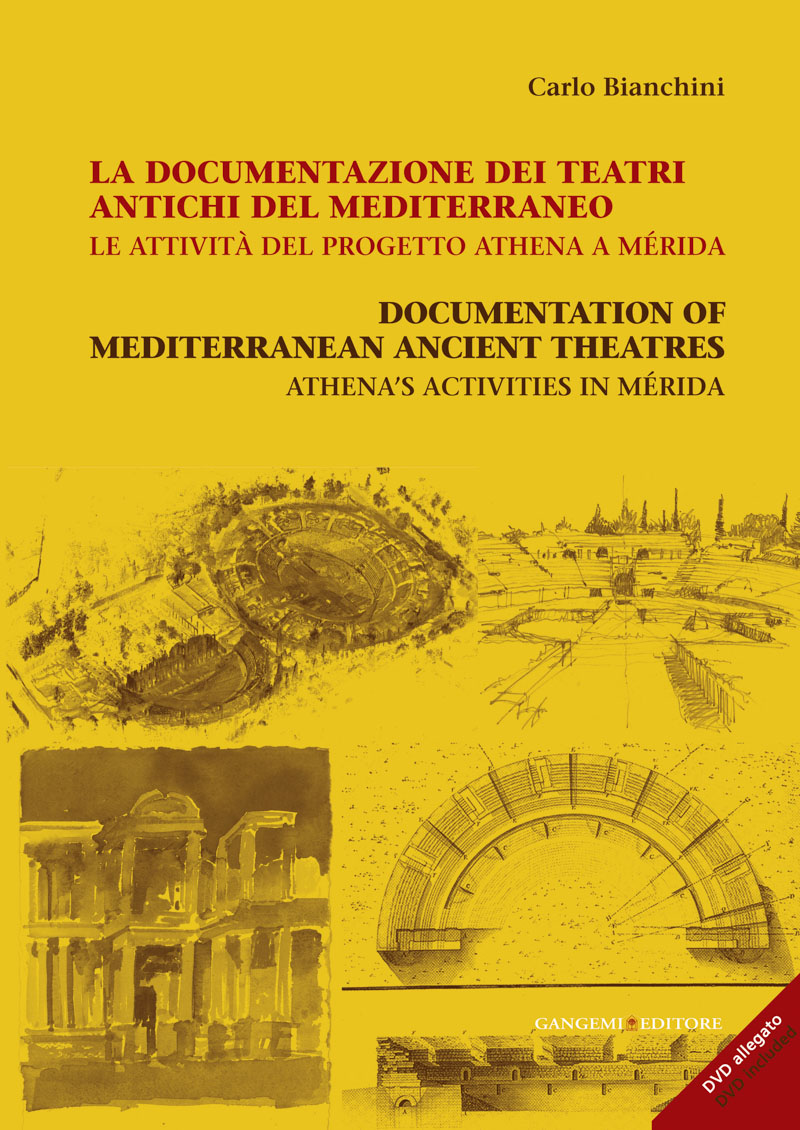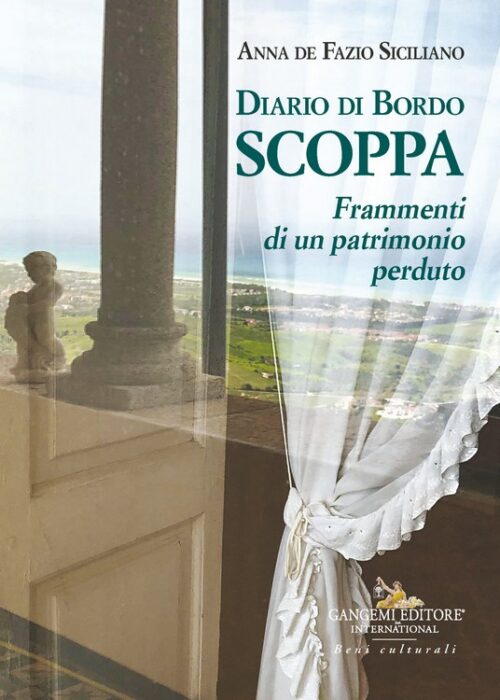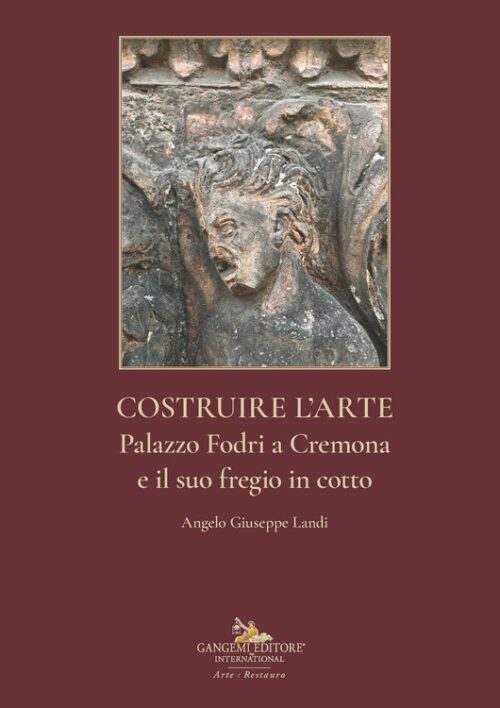
32,00 €
Potrebbero interessarti anche
La documentazione dei teatri antichi del Mediterraneo – Documentation of mediterranean ancient theatres
Le attività del progetto Athena a Mérida - Athena's activities in Mérida
Autori: Bianchini Carlo
Facing English text - con CD-ROM multimediale solo per edizione cartacea
Formato: 21 x 29,7 cm
Legatura: Filorefe
Pagine: 208
Anno edizione: 2013
ISBN: 9788849225242
EAN: 8849225245
UB. INT. : T505C T800F V04c V16b V42h
Contenuto
I Teatri Antichi rappresentano una delle eredità più straordinarie che le civiltà del passato ci hanno trasmesso. Straordinaria è inoltre la capillare diffusione di questo tipo architettonico lungo l’intero bacino del Mediterraneo come pure il numero dei teatri che ancora oggi ospitano con regolarità rappresentazioni e spettacoli. In prospettiva, la sopravvivenza dei Teatri Antichi di fatto oscillerà tra questi due estremi: da un lato un riuso contemporaneo che ne mantiene vive le funzioni e la rilevanza culturale, sociale e anche economica ma che nel medio/lungo periodo conduce ad un inevitabile progressivo deterioramento; dall’altro una conservazione tout court che, eliminando ogni pressione antropica preserverebbe effettivamente la struttura condannandola tuttavia ad una inesorabile morte sul piano culturale, sociale ed economico. Tutte le precedenti considerazioni, sebbene con differenti livelli di priorità e differenti esigenze, delineano con chiarezza la necessità che il problema venga affrontato nella sua interezza, principalmente attraverso la progettazione, la verifica e l’applicazione in concreto di strumenti di gestione innovativi capaci di affrontare caso per caso le complesse problematiche fin qui schematicamente delineate. È dunque su queste basi che si è mosso ATHENA (Ancient Theatres Enhancement for New Actualities) nell’ambito di Euromed, una misura dell’Unione Europea nata allo scopo di favorire la cooperazione tra paesi dell’area euro-mediterranea. Il Progetto ATHENA, in particolare, ha come obiettivo lo sviluppo sostenibile dei Teatri Antichi del Mediterraneo anche in relazione al loro rapporto con la società civile e le istituzioni di tutela. Sotto la supervisione del Regional Monitoringand Support Unit (RMSU). Il Progetto ha perseguito diversi obiettivi tutti finalizzati alla definizione di una nuova e più aggiornata strategia di documentazione, conservazione, valorizzazione e fruizione compatibile delle strutture teatrali antiche del Mediterraneo a cominciare da quelle presenti nei paesi partner (Giordania, Italia, Spagna, Tunisia, e Algeria) e ricompresi nella lista UNESCO. Nel presente volume sono dunque presentati I risultati delle attività di documentazione e alcune analisi preliminari sviluppate sul sito spagnolo di Mérida in stretta cooperazione con l’Instituto de Arqueología de Mérida.
Ancient theaters are in many ways one of the most extraordinary legacies that past civilizations have left us. No less extraordinary is how well this architectural type is distributed around the entire Mediterranean basin, or the number of theaters that regularly host performances and shows. Prospectively, the survival of ancient theaters will oscillate between these two extremes: on the one hand, a contemporary reuse that keeps their functions alive along with their cultural, social and even economic relevance, but in the medium to long run will lead to inevitable progressive decay; on the other hand, an uncompromising conservation that by eliminating all manmade pressures would indeed be effective in preserving the structure but would nevertheless condemn it to an inexorable death, culturally, socially and economically. All of these considerations, albeit with different levels of priority and different needs, make it clear that the problem must be addressed as a whole, chiefly through the design, testing and concrete application of innovative management tools capable of dealing case by case with the complex issues we have outlined. All the above mentioned issues do also represent the core of the Ancient Theaters Enhancement for New Actualities (ATHENA) Project, a Euromed initiative designed to bolster cooperation and ideas between Europe and Arab countries across the Mediterranean in the field of ancient theater development and their relationship with civil society institutions and communities. The ATHENA Project is supported and funded under the Euro-Med Heritage IV program by the European Commission and supervised by its Regional Monitoring and Support Unit (RMSU). The Project has pursued a number of goals, all focusing on developing a new and more up to date strategy for the documentation, conservation, valorization and compatible use of the Mediterranean basin’s ancient theaters, starting from those located in the partner countries (Jordan, Italy, Spain, Tunisia and Algeria) and included in the UNESCO list. In this volume are presented the results of the documentation and analysis work carried out at the Spanish site in Mérida in cooperation with the Instituto de Arqueología de Mérida.
con contributi di / with papers by
Nizar Al-Adarbeh, Francesco Borgogni, Eliana Capiato, Chiara Capocefalo, Emanuela Chiavoni, Francesco Cosentino, Mario Docci, Carlo Inglese, Alfonso Ippolito, Pedro Mateos Cruz, Antonio Pizzo, Francesca Porfiri, Luca J. Senatore
Parole chiave
Condividi su













